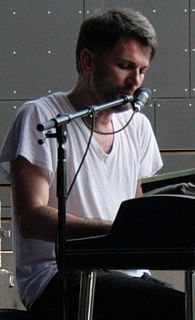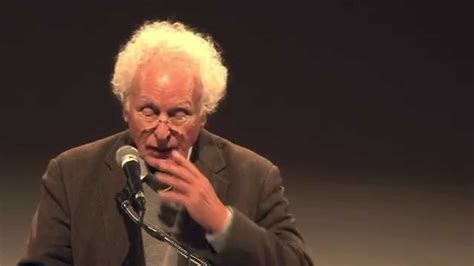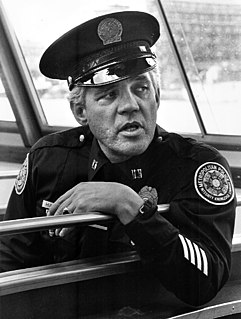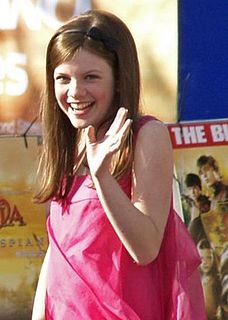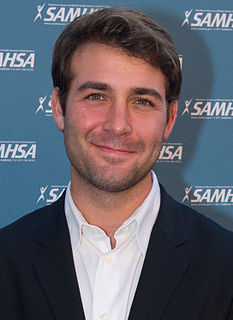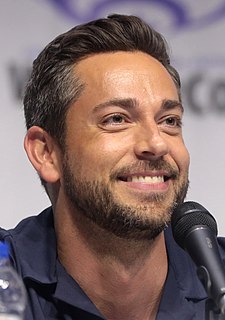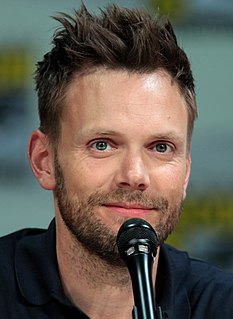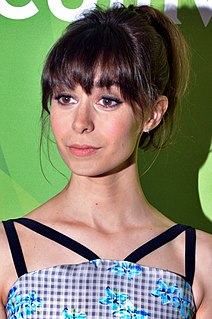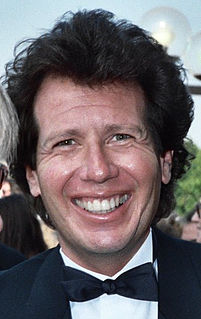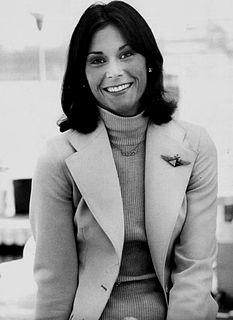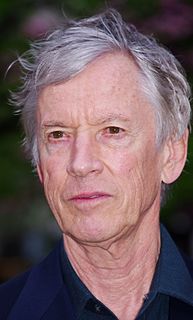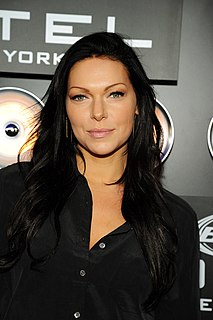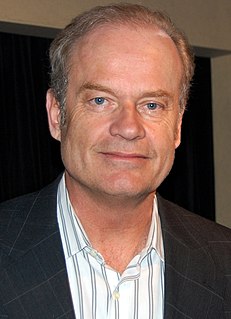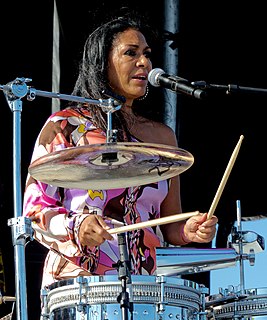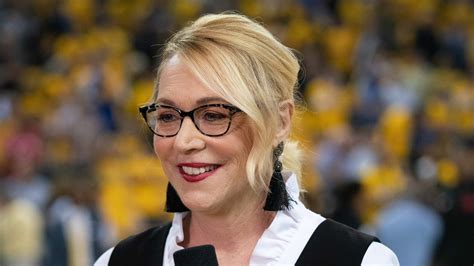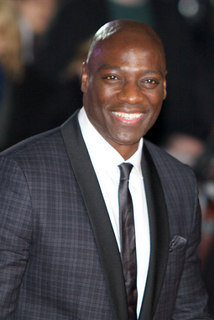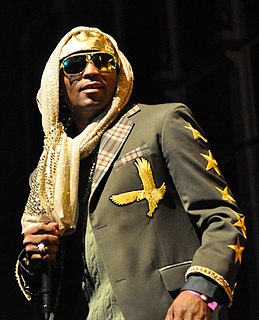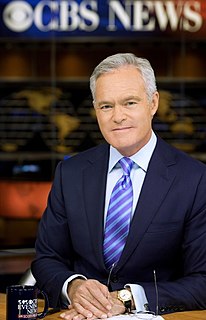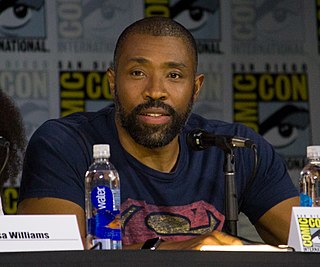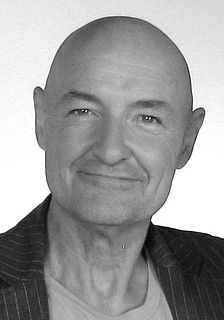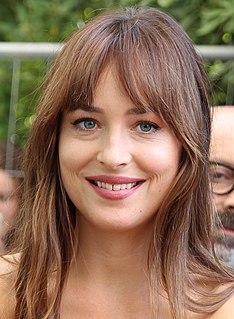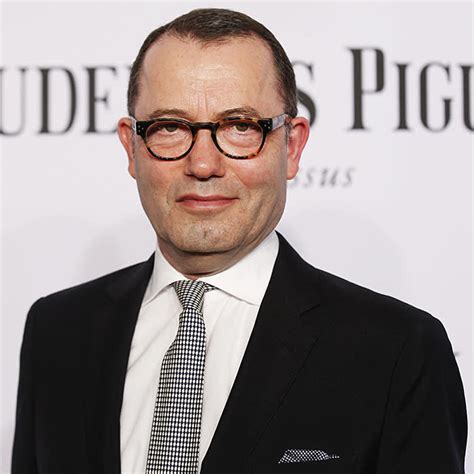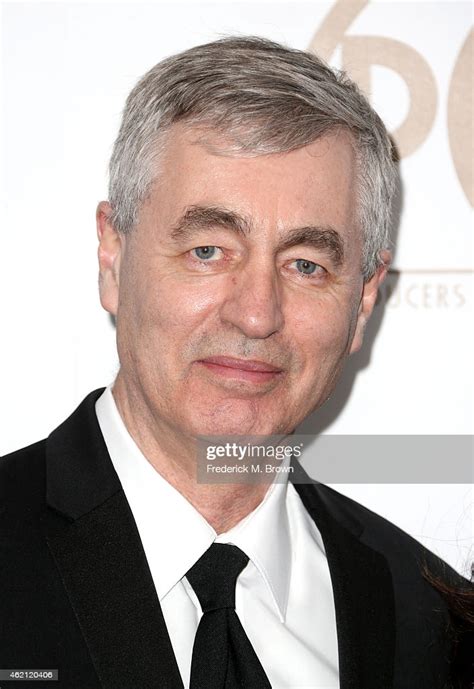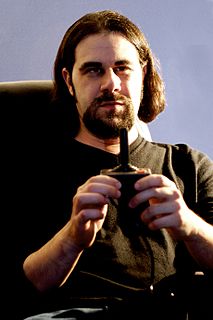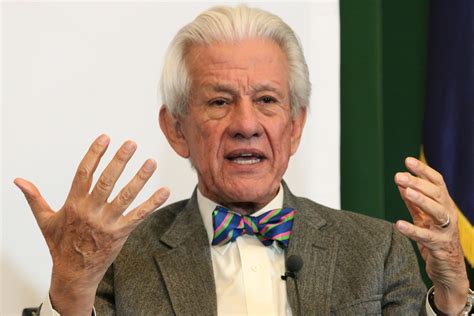Top 1200 Television Drama Quotes & Sayings - Page 14
Explore popular Television Drama quotes.
Last updated on November 15, 2024.
I don't want to sound creepy, but I remember when I couldn't really talk. I was looking at the television and my mother just moved one of the curtains, so the sun started to hit the television, and I couldn't see the television anymore. I started crying. I wasn't able to find the words to say, "I can't see this anymore, please do something about it." I remember crying and not knowing exactly how to express myself; not because it was painful, or that I was too upset, but because there were no words. As human beings, sometimes we just cry when we don't know how to say something.
The program is only the excuse to get you to watch the advertising. Without the ads there would be no programs. Advertising is the true content of television and if it does not remain so, then advertisers will cease to support the medium, and television will cease to exist as the popular entertainment it presently is.
The big thing is it's a domestic drama. Everything else in science fiction tends to be high-concept. Really for the last 40 years or so I think sci-fi's been a little cold and a little inhuman quite often - certainly since the 1980s - and I really wanted to do something that almost felt like a regular, real-life drama but just set it in a sci-fi setting. I think the best stuff is always like that.
I genuinely am sort of an emotionally stunted man-child, so if I just write to the top of my intelligence, it sounds like a teenager. I like being around teenagers. It's good for drama; they feel everything much more intensely than adults do, their lives are much more interesting than ours. They're mutants. They have these weird bodies that are rebelling against them and changing every day. Teenagers always equal good drama.
We dream — it is good we are dreaming — It would hurt us — were we awake — But since it is playing — kill us, And we are playing — shriek — What harm? Men die — externally — It is a truth — of Blood — But we — are dying in Drama — And Drama — is never dead — Cautious — We jar each other — And either — open the eyes — Lest the Phantasm — prove the Mistake — And the livid Surprise Cool us to Shafts of Granite — With just an Age — and Name — And perhaps a phrase in Egyptian — It's prudenter — to dream —
There's this message to comedians in particular, that you shouldn't write it, and a television writer should write it. And that's a prevailing conventional wisdom that I think is really wrong. That's not to say that television writers aren't great, but I think that the belief that some comedy writer's going to be able to capture your voice is naive.
I find it hard to act unprofessionally because I can't do drama at school, it's hard for me to do drama out of school, I don't have time any more. I dance as well. I don't have time to work and dance and still have a good social life. I miss that security but I'm hoping that this is a good time for me. I'm trying to do as much as possible to get myself out there and hopefully it will work out.
I'm very conditioned by my surroundings, by the influences of social media, by the television I watch. And I always found, growing up, that even inspiring female characters or complex female characters in television and film, I often found that their complexity was actually just another facet of their sexuality.
There is state-run television in Russia, which is more loyal to the state, as it always is with state television in any country. We have private owned networks; some of them are oppositional. We have thousands of regional networks that, in their regions, are more watched than the so-called federal stations.
If I have my way, I want to go start making really interactive television. Stuff where you can sit and watch real actors do a real series and they can get into some kind of gun battle and all of a sudden your television prompts you to pick up your controller and all of a sudden, you're playing a first-person shooter.
I was living in London and I thought, 'There's nothing here for me anymore.' I don't want to become this actor who's going to be doing this occasional good work in the theater and then ever diminishing bad television. I thought I'd rather do bad movies than bad television because you get more money for it.
There is some stuff on television that is shocking that it's on there, and shocking that it's not being censored. We run to that with torches and pitchforks and go after it. On Flavor Of Love, when a woman took a dump on the stairs, I mean, that's like J.R. being shot on Dallas, or like maybe the last episode of M*A*S*H. It's a milestone on television that's covered with chlamydia.
It's interesting to me because theater is, on any given day, 10,000 times harder than film and television. And that's not to say film or television can't be hard or challenging; it's emotional to do the same thing over and over and over. But in terms of stamina, there is nothing like an eight-show week to separate the men from the boys.
If there is no point in the universe that we discover by the methods of science, there is a point that we can give the universe by the way we live, by loving each other, by discovering things about nature, by creating works of art. And that — in a way, although we are not the stars in a cosmic drama, if the only drama we're starring in is one that we are making up as we go along, it is not entirely ignoble that faced with this unloving, impersonal universe we make a little island of warmth and love and science and art for ourselves. That's not an entirely despicable role for us to play.
I do think this is where television is going, and I think that it's awesome to be a part of a show like this because we are these pioneers into this new medium. And it's working. When you look at the success of House of Cards and Arrested Development, which I love, this is how people are watching television now. It's pretty cool to be a part of this whole thing.
I learned a lot from Dick Wolf. I'll always remember playing that character because it was such a good character. It was great to be able to be a character like that for television. I think the thing that I'll bring from the whole experience, the whole 10 years, is I had never been interested in the television business before.
Television is also a great tool for women. As you know, the best female roles are often on television, so it's a very exciting time. I've really embraced it. The pace is great, but also not so great sometimes. You feel like you have to make sure to pay attention, at all times, to not let anything slip through.
If you are on television, that one night that someone is able to see you, you're talking about millions of people in one day. That's pretty awesome because then it helps you to jumpstart your career, and if you're the one to go out there and perform, people are going to come see you because those millions saw you on the television.
There's a new success model, and us and some of our peers are now starting to prove that TV and very traditional content also works on the Internet, specifically on YouTube, and it can rival television audiences and television production value. 'MyMusic' is proof of that, having a successful run and now coming back for a second season.
Upon the publication of Goethe's epic drama, the Faustian legend had reached an almost unapproachable zenith. Although many failed to appreciate, or indeed, to understand this magnum opus in its entirety, from this point onward his drama was the rule by which all other Faust adaptations were measured. Goethe had eclipsed the earlier legends and became the undisputed authority on the subject of Faust in the eyes of the new Romantic generation. To deviate from his path would be nothing short of blasphemy.
I think that what 'Oz' did is it spawned a great generation of television production. But people know its place in television and just in great dramas. It's the foundation of my career. Most producers, show runners, directors, and casting directors put me in movies based on my performance in that show.
I think what people watch television for is the emotional continuity, from episode to episode, and feeling that the experience that they had, four episodes ago, has actually been building to an episode that comes later, and knowing that the characters are growing, as a result of that, and making mistakes, is really, really important to the way people connect to television.
I saw this new thing called television, and I saw people throwing pies in each other's faces, and I thought, 'This could be a wonderful tool for education! Why is it being used this way?' So I said to my parents, 'You know, I don't think I'll go into seminary right away. I think I'll go into television.'
I've heard - when I first started, people were saying, "You know if it ends up being Trump against [Hillary] Clinton, it's going to be the highest-rated debate in the history of television - or, show in the history of television. And they also said something else. It'll probably be the greatest voter turnout in the history of this country. That could very well be.
Some of the greatest reality television we ever had was the moon landings. When you think about it, that was human emotion and people, unscripted, working with each other - and millions and millions of people around the world, glued to their television sets to share real-time in a brand new, fascinating human experience.
My first job was television. I got to where I wanted to go, but through a little bit of a detour. When I first started working in film and television, I hated myself - I didn't like what I was doing at all. All I could think of was, 'I'm overacting. Be smaller.' I started to do that, but that was not fun. I felt confined doing film and TV.
I love really exploring... you know, a cop drama for example is a great way to explore class in this country and explore, you know, really, identity in the country and who we are in a way that is extremely exciting, but it's also real, you know, it's also real people and real drama. The same with the military. I mean, a good science fiction story is also great.
When you're studying drama, when you're a young actor, there are simple rules about acting. "Why am I here? What prevents me from leaving? What am I trying to get? How do I hide something?" So when you're making a film like Abel's movie, you want to be thinking about those things all the time. And you wanna be armed with those things, and you hope the other actors you're working with have the same understanding of drama and scene and acting. Sometimes it works and sometimes it doesn't.
I missed the television train at some point. I don't know what happened, but now I've created a complex about it. I'm missing out on what everybody's watching, and now I can't even begin to think about starting to watch a television show because it's been so long. I don't even have a Netflix account.
I think where Playground is heading is deeper into that marriage between stage, film and television, with the increasing number of people in the film business working in television, obviously something that we were very influential in starting and doing at HBO. And I think that that's the focus of where I see the company moving forward, continuing to explore that intersection of all that talent.
One of the differences between real documentaries and reality television, besides the artificial construct of reality television, is that the people who are recruited to be on those shows, and the people who are interested in going on those shows, basically want to be famous. Or maybe they can win a million dollars or something.
In my early teens, I knew I wanted to do television production. I loved cameras, editing and producing, anything that had to do with television production. My friend had a production studio across town, and we'd go over there at night and shoot and edit. I produced my father's televised service for 17 years.
I don't have a television in my house. I haven't owned one in years. In truth, it's about mental health for me. It's hard for me to have a television in the house because I'll just stay inside and binge-watch stuff that I don't even want to watch. I've learned when I don't have a TV, it forces me to go outside.
I believe television is going to be the test of the modern world, and that in this new opportunity to see beyond the range of our vision, we shall discover a new and unbearable disturbance of the modern peace, or a saving radiance in the sky. We shall stand or fall by television - of that I am quite sure.
I've been a Republican since age 13, when we got our first television set, and I saw the Republican National Convention on television. And President Eisenhower was talking about personal responsibility, about opening the door for opportunity and that people could really take care of themselves without a lot of government intrusions.
I think that Apple has revolutionized every other consumer industry; why not television? The complexity of the experience of using the television gets more and more complicated. So it seems exactly the sort of problem that if anyone is going to change the experience of what the first principles are, it is going to be Apple.
Comedy is more difficult than drama. I think it's really difficult to make someone laugh because people have very different comedic sensibilities. In drama, you can get away with being a great actor and surrounded by great actors and having good writing. But in comedy you have to listen and you have to perform with a certain rhythm, because if you don't, it's like playing a wrong note in the orchestra and you can hear the off key and it will fall flat and you won't get that instant response.

